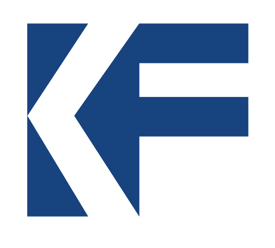Eighteen projects aimed at improving journalism or media are each receiving $35,000 in seed funding from Knight Foundation as part of the latest round of funding from the Knight Prototype Fund, the foundation just announced. (Disclosure: Knight also funds Nieman Lab, though not through the Prototype Fund.)
 The grant recipients range from the Harvard Library Innovation Lab and the Berkman Center for Internet & Society, which are jointly developing a system to send encrypted messages that can’t be read until a specific time, to an individual developer building a battery-powered device to stream photos from a camera back to a newsroom in real time.
The grant recipients range from the Harvard Library Innovation Lab and the Berkman Center for Internet & Society, which are jointly developing a system to send encrypted messages that can’t be read until a specific time, to an individual developer building a battery-powered device to stream photos from a camera back to a newsroom in real time.
Many of the more journalistically focused projects in this round of funding involve audience engagement and how to better solicit and accept user-generated content. Public Radio International is building a system to allow readers to respond to news articles by integrating prompts into the body of stories. Another grantee is MuckRock, which is building an app that assigns users crowdsourcing tasks, lets them submit photos, and more to increase contributions from the audience.
Each project has six months to research, iterate, and test their ideas, and at the end of the six months all the groups come together to present their projects for a demo day. The projects also begin the program with a three-day workshop on design thinking. Applications for the next round of Prototype Fund funding are due on November 1.
Here’s the full list of winners:
Andrew Chavez (independent project; Austin, Texas): Allowing photojournalists to stream photos to the newsroom in near real time with a small battery-powered device that attaches to a camera.
C-Lab, Columbia University Graduate School of Architecture, Planning and Preservation (Project lead: Benedict Clouette; New York): Creating a toolkit that will allow communities to study possibilities for developing vacant land in their neighborhoods based on data such as pedestrian accessibility, slope, sunlight, liens, etc.
Creative Commons (Project lead: Ryan Merkley; Mountain View, Calif.): Creating a mobile app that allows users to capture and share photos through a public repository on the Internet Archive. Photos will have a Creative Commons license, making them available to anyone for use and reuse.
CommunityRED (Project lead: Shauna Dillavou; Washington, D.C.): Creating a mobile game that teaches journalists how to assess digital threats, risks and vulnerabilities that can affect them and their sources.
Fergus Pitt and Taylor Owen (independent project; New York): Providing the first live-action, interactive journalistic use of virtual reality through a headset that will immerse viewers in a 360-degree, 3-D visual and audio space.
Harvard Library Innovation Lab/Berkman Center for Internet & Society (Project lead: Jonathan Zittrain; Cambridge, Mass.): Creating a time-lapse encryption service that will allow archivists, scholars and journalists to securely send a message into the future, so it cannot be read until a certain date or event.
How Wrong You Are (Project lead: Moiz Syed; San Francisco): Expanding the tool How Wrong You Are, a collection of important questions that people are sometimes misinformed about that provides insights into public knowledge of a particular issue, such as climate change.
Infogram Software Inc. (Project lead: Mikko Jarvenpaa; San Francisco): Creating an educational game that teaches children data literacy, data visualization and critical thinking.
Internews (Project lead: Megan DeBlois; Washington, D.C.): Creating an easy-to-use, open source digital trainer tool that will allow digital security developers to simulate a variety of hostile digital environments, such as a censoring firewall or a surveilling Internet service provider.
MuckRock (Project lead: Michael Morisy; Boston): Developing a mobile app that allows users to contribute to news stories with assignments including quick crowdsourcing tasks (glancing through documents, categorizing or submitting pictures, choosing a headline, taking news quizzes and more).
National Freedom of Information Coalition (Project lead: Hyde Post; Atlanta): Training state and local government employees and agencies about state open records, open meetings, and freedom of information laws and regulations through a service including mobile apps and professional support.
Open Technology Institute, the Open Internet Tools Project and Measurement Lab (Project lead: James Vasile; Washington, D.C., and New York): Building a network to test in real time the effectiveness of anti-censorship tools to provide guidance to activists, journalists and citizens and help them access blocked information.
Public Radio International (Project lead: Michael Skoler; Minneapolis, Minn.): Making it easier for people to directly respond to news stories by displaying relevant user-actions within the story; actions will be integrated into the body copy where they contextually make sense.
Participatory Politics Foundation (Project lead: David Moore; New York): Building tools that will allow media organizations to enable their readers to ask questions and get answers from public figures; the tools will be powered by the foundation’s Q&A Web app, AskThem.io.
Rhizome (Project lead: Michael Connor; New York): Providing a tool that will allow the archiving and preservation of social media conversations in context (the likes, the threaded responses, the aesthetics).
SciStarter (Project lead: Darlene Cavalier; Philadelphia): Connecting data journalists and researchers with citizen scientists who are interested in helping them collect data about specific issues (i.e. water quality in a particular neighborhood).
University of Maryland Nicholas Diakopoulos (College Park, Md.): Making it easier for community managers and moderators in news organizations to quickly identify high-quality comments that they can then highlight on their sites.
Ushahidi (Project lead: Gregory Omondi; Orlando, Fla.): Creating a mobile app that people can use to check in during a crisis or disaster.
Leave a comment